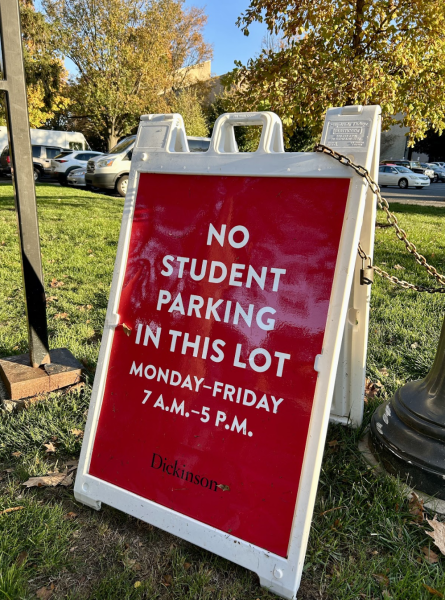Dickinson’s Need for Medical Amnesty
Dickinson has a myriad of problems when it comes to the school’s community standards and drug policy, but the absence of a full and complete medical amnesty policy is one of the most pressing issues because it puts student safety in jeopardy. A medical amnesty policy is a way to make sure students make responsible decisions by protecting them from punishment when they call for medical help during an emergency relating to alcohol or other drugs. The threat of disciplinary action by the school often causes hesitation during stressful situations, impeding a student’s ability to make a rational, smart decision during an emergency. At a school like Dickinson, which has particularly harsh sanctions on drug-related charges, the fear of getting in trouble could very well prevent someone from calling help just so they won’t get caught.
In the Community Standards, Dickinson outlines what it calls “Alcohol Amnesty.” It states that a student who contacts DPS or 911 for another student in need of immediate medical assistance will not be held responsible for their own alcohol consumption. There are three exceptions, however. The reporting student must give their name, must reasonably believe that they were the first to call DPS/911, and must remain with the person receiving medical assistance until they arrive. While it is good that Dickinson recognizes the need to protect underage drinkers from sanctions when they were acting in an emergency, the policy as currently outlined does not extend past situations regarding alcohol. If, for instance, two students are participating in opiates and one requires emergency medical assistance, the reporting student can and will still get in trouble for drug use. A full medical amnesty policy would cover situations involving both alcohol and drugs. Otherwise, the policy is incomplete and unfair to students who would be put in a difficult situation. The other issue with Dickinson’s policy is that it does not cover the victim, only a caller. It is still possible to go to the hospital for alcohol poisoning and get a letter calling you into Student Life a few days later. The medical emergency in itself is enough of a sanction for the victim; no one needs the stress of a conduct sanction after a life threatening situation.
Medical amnesty policies, also known as Good Samaritan policies, are being adopted by more and more colleges each year. Right now, there are 240 schools with full medical amnesty policies that cover both the caller and the victim, including Bucknell, F&M, and Gettysburg, schools similar to Dickinson. The current state of Dickinson’s amnesty policy is not enough to ensure students can make smart decisions without fear of punitive action. If Dickinson’s administration truly expects the students to make good decisions in difficult situations, they would remove the threat of punishment in emergency situations related to alcohol or other drugs.
Students for Sensible Drug Policy (SSDP) is currently fighting to get a full medical amnesty policy enacted at Dickinson. If you are interested in more information, email [email protected] or come to a meeting at 5pm on Tuesdays in the Underground.



